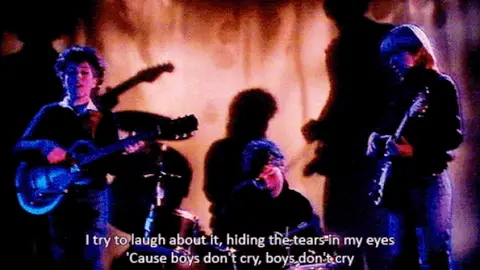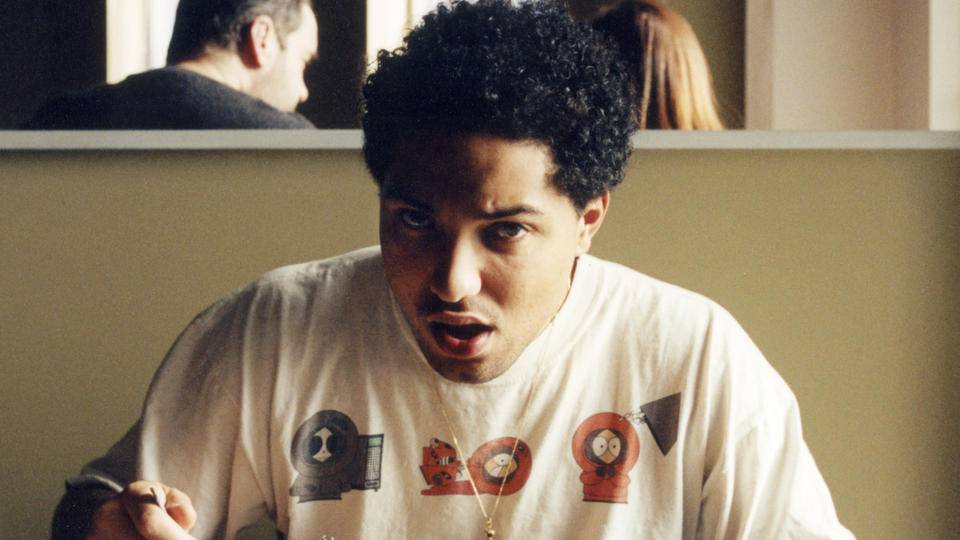Boys Don't Cry: My Story

One writer explores what it'slike to grow up within the confines of being a 'man'...
What does it mean to be a man?
Being a man means many different things. It means reaping the rewards of patriarchy and having an unfair advantage from birth.It also means trying to fit into a pre-determined box that society has created for you even before you were born.
'Here's Anna Akana talking all things mental health at VidCon...'
'
'
Being raised in a traditional household, men and women were seen to have certain roles. The women in my life were emotional lifelines that would care for and nurture you. The men were seen to be quiet but authoritative. Simple yet firm. Stern but fair. If ever something got me down or affected me on an emotional level, then there was always a quick and simple solution: bury it deep down inside. My dad, my uncles, my cousins were thick-skinned individual who never shed a tear, and they were my role models. I thought this was what it meant to be a ‘real man’.
Trying to mould my identity along these rigid guidelines wasn’t always easy, but it was something I persevered with. For a while, this worked. Until one day it didn’t.
Growing up, mental health wasn’t a topic that would come up too often. Emotions. Vulnerability. Being sensitive. These weren’t things that I thought ‘real men’ should concern themselves with. More often than not, we need to see something with our own two eyes in order to know that it’s real. A bruised knee, a broken bone, a cut lip. But what happens when this ‘thing’ isn’t something that is immediately obvious?
The year was 2010. I was 17 years old, finishing up some work for school the next day, and something didn’t quite feel right. Nevertheless, I’d put the finishing touches to my work and was all set to call it a night.
As I lay my head to rest, I heard my mum rushing downstairs. At that moment, I knew that something was wrong. I stepped out of my room.
‘He’s gone’.
With those two words, I knew my life had changed forever.
Trying to be a ‘man’, one who doesn’t feel, cry or express their innermost thoughts, meant that I wasn’t equipped to deal with my newfound grief. Don’t get me wrong; no one can prepare you to deal with death. But years of toxic masculinity taught me that when times are hard, silence is the solution. So why should that change now?
My experience of grief was just that: silence. I buried my feelings of anger and depression so far down that when once in a blue moon they came to the surface for some air, they expressed themselves in the most erratic ways possible: either through bouts of intense devastation, uncontrollable violence or immense anger. This lasted for four years.
On the surface, everything seemed fine. I would talk to my friends, go out, and roll through life like all was good. But things weren’t as rosy as they seemed on the outside. I was so unhappy. I was numb. On the odd occasion I let my ‘masculine’ exterior slip, friends and family would try to get me to speak about it, but I couldn’t – I wasn’t used to it. I felt safe in my silence. It’s what I came to rely on for 21 years. But this silence was deafening.
As my early years reached their climax and my twenties were in full swing, some of my family and friends began experiencing mental health problems. More and more I would see this unspoken, hidden issue become all too real. But what was I to do? Other than one token session at school, we never spoke about the importance of taking care of our mental health.
I realised that I couldn’t take it anymore. Grief had riddled my life and I was sick of feeling numb. This didn’t mean that I never experienced joy throughout these four years; what it meant was that more often than not, blue was the colour and numbness/ grief was my default state.
One day I said f*ck this and decided to speak out. The first personI spoke to was my mum. I felt like a mountain of hurt had been lifted from my chest. I could suddenly breathe again.
Today, speaking out is important to me. Mental health is important to me. I’ve realised that being a ‘man’ is a singular idea of what a whole gender ‘should’ be and, really, I am the only one who can define what kind of ‘man’ I want to be.
Trying to live up to toxic forms of masculinity is harmful, and it doesn’t make you stronger. I have never felt as empowered or liberated as when I decided to abandon this toxic ‘masculinity’ I thought was so important. Speaking took more strength than silence ever could.
- Bar Hariely
'Check outmind.org.ukto find out more about mental health,and if you need to talk to someonetry calling Mind'sInfolineor find out more about who else you can approachfor support here.'





